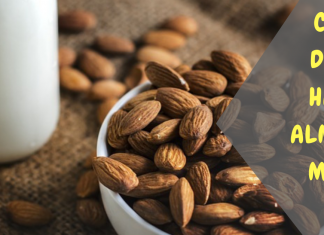Welcoming a new puppy into your home is an exciting and joyful experience, filled with wagging tails and boundless energy. As a pet parent, you naturally want to ensure your furry friend grows up to be strong, healthy, and happy. Just like us, puppies require a balanced blend of nutrition, exercise, and care to thrive. In this guide, we’ll explore essential tips and practices to help your puppy develop a robust foundation for a long, healthy life. From selecting the right food to creating a safe environment and establishing a routine, we’ll walk you through the steps to nurture your puppy’s well-being with love and dedication. Let’s embark on this heartwarming journey to give your puppy the best start possible.
Choosing the Right Nutrition for Your Puppy
Welcoming a puppy into your home is an exciting journey, and ensuring their diet supports growth and vitality is crucial. Nutritional needs vary with age, breed, and size, so it’s important to choose a diet that meets these specific requirements. Look for high-quality puppy food that is rich in protein to support muscle development and calcium for strong bones. It’s also essential to include omega-3 fatty acids for brain development and antioxidants to boost their immune system. Consulting with a veterinarian can provide personalized recommendations tailored to your puppy’s unique needs.
When selecting food, consider the following components:
- Whole proteins: Ensure the first ingredient is a high-quality meat source like chicken, beef, or fish.
- Grain-free options: If your puppy has sensitivities, opt for grain-free formulas that include sweet potatoes or peas.
- Balanced nutrients: Check for a balance of carbohydrates, fats, and fibers to aid digestion and energy levels.
- Natural preservatives: Avoid artificial additives and preservatives for a healthier diet.
Remember, every puppy is unique, and their dietary needs may change as they grow. Regular check-ups with your vet can help monitor their health and adjust their diet as necessary.

Creating a Safe and Stimulating Environment
To nurture your puppy’s growth, it’s essential to create an environment that is both secure and engaging. Begin by puppy-proofing your home, removing any potential hazards such as electrical cords, toxic plants, and small objects that can be swallowed. Safety gates can be particularly useful to restrict access to certain areas, ensuring your pup has a safe space to explore.
Equally important is the stimulation of your puppy’s developing mind. Interactive toys and puzzle feeders can provide hours of entertainment and mental exercise. Consider establishing a routine that includes regular playtime, training sessions, and socialization opportunities. These activities not only foster a strong bond but also contribute to your puppy’s overall well-being. Remember, a happy puppy is a healthy puppy!
- Use puppy-safe cleaning products to maintain a clean environment.
- Ensure there are quiet, cozy areas for your puppy to rest and recharge.
- Introduce a variety of textures and surfaces for your puppy to explore.
Implementing a Consistent Exercise Routine
Establishing a routine is key to nurturing your puppy’s health and vitality. Start by setting aside a specific time each day dedicated to physical activity. Puppies thrive on predictability, and a regular schedule helps them understand what to expect. Aim for a mix of play and structured exercises, ensuring your puppy is engaged and having fun. Short bursts of energy, such as a game of fetch or a brisk walk, are ideal for keeping their developing bodies fit without overexertion.
- Interactive toys: Use toys that encourage movement, like balls or tug ropes, to keep your puppy entertained and active.
- Nature walks: Introduce your puppy to different environments to stimulate their senses and improve their socialization skills.
- Training sessions: Incorporate basic commands into your routine to boost their mental agility while also providing physical activity.
Remember, the goal is to create a balanced routine that caters to your puppy’s needs. Adjust the intensity and duration based on their breed, age, and energy levels. Always observe your puppy for signs of fatigue, and ensure they have plenty of water and rest post-exercise. With patience and consistency, you’ll be setting the foundation for a strong and healthy life for your furry friend.

Understanding the Importance of Regular Veterinary Check-Ups
Ensuring your puppy’s well-being is a continuous journey, and one of the key aspects of this journey is scheduling regular visits to the veterinarian. These check-ups are not just for when your furry friend is feeling under the weather; they are essential for maintaining overall health. Regular veterinary visits help in early detection of potential health issues, keeping vaccinations up-to-date, and ensuring that your puppy is developing properly. Think of these visits as a proactive approach to safeguarding your pet’s future.
- Vaccinations: Protect your puppy from various diseases by keeping their vaccinations current.
- Weight and Nutrition: Veterinarians provide guidance on the best nutrition plan tailored to your puppy’s needs.
- Parasite Prevention: Regular checks help prevent fleas, ticks, and other parasites.
- Dental Health: Vets monitor and advise on maintaining your puppy’s dental hygiene.
Incorporating these visits into your routine not only ensures your puppy stays strong and healthy but also fosters a trusting relationship between your pet and the vet, making future visits less stressful for everyone involved.
















